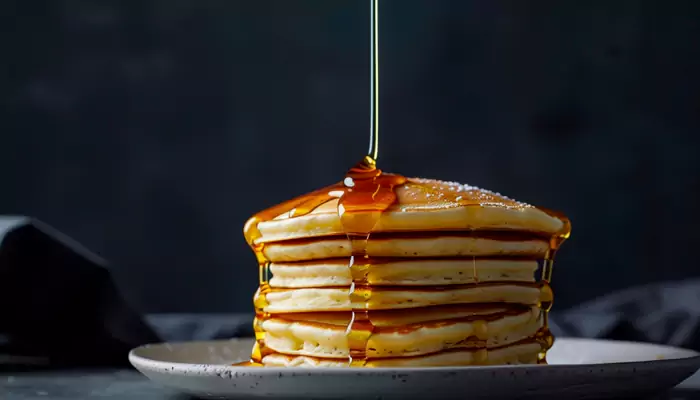Sugar Alternatives 101: Manage Your Health with These Option
We all know the allure of sugar- the sweet taste that elevates desserts, enhances beverages and gives us a quick burst of pleasure. However, the consequences of indulging in refined sugar are becoming increasingly understandable. From weight gain and increased risk of diabetes to dental problems and inflammation, the "sweet life" can come with a bitter aftertaste for our health.
- Orna Ghosh
- 04 March, 2025
- 2 mins ago

Sugar Alternatives 101: Manage Your Health with These Option
We all know the allure of sugar- the sweet taste that elevates desserts, enhances beverages and gives us a quick burst of pleasure. However, the consequences of indulging in refined sugar are becoming increasingly understandable. From weight gain and increased risk of diabetes to dental problems and inflammation, the "sweet life" can come with a bitter aftertaste for our health.
However, the good news is you don't have to give up sweetness entirely! There's a whole world of sugar alternatives waiting for us to explore. This guide will delve into some popular options, helping you navigate this sweet new terrain and manage your health without sacrificing flavour.
Do We Have Alternatives?
Sugar alternatives come in two main categories: natural and artificial. Natural sweeteners are derived from plants, fruits, or other natural sources, while artificial sweeteners are lab-created compounds with intense sweetness.
Each category offers unique benefits and drawbacks:
Natural Sweeteners
Honey
A classic choice, honey offers a touch of sweetness with a hint of floral notes. It contains small amounts of minerals and antioxidants but is still a form of sugar, so moderation is key.
Maple Syrup
Derived from maple trees, maple syrup offers a rich, caramel-like flavour, perfect for pancakes or oatmeal. It has slightly more beneficial nutrients than sugar but still provides calories.

Dates
Nature's candy and dates provide natural sweetness with a chewy texture. They are packed with fibre, vitamins, and minerals, making them a healthy alternative. However, dates have a higher glycemic index than other options, meaning they might cause a quicker rise in blood sugar.
Stevia
Stevia leaves are incredibly sweet alternatives, with a negligible effect on blood sugar- derived from a South American plant. However, some find its aftertaste unpleasant.
Monk Fruit
This extract from a Southeast Asian fruit is another "highly" sweet option with no calories and minimal impact on blood sugar.
Artificial Sweeteners
Aspartame
This widely used sweetener is calorie-free and intense in sweetness. However, some studies suggest a potential link between aspartame and health concerns, though further research is needed.
Sucralose
Another popular option, sucralose is calorie-free and maintains its sweetness even under high temperatures, making it ideal for baking.
Saccharin
This long-standing artificial sweetener is calorie-free but may have a slightly bitter aftertaste.
How to Choose the Right Option?
The ideal sugar alternative depends on your individual needs and preferences. Here are some tips-
Health Goals
If managing blood sugar is a priority, consider stevia, monk fruit, or artificial sweeteners with minimal impact on blood sugar.
Calorie Intake
Artificial sweeteners are your best bet for a calorie-free option.
Taste Preferences
Experiment! Some natural sweeteners, like stevia, have unique flavours, while others, like monk fruit, are more neutral.
Cooking Applications
Some alternatives, like honey or maple syrup, may not be suitable for high-heat cooking due to their burning potential.
Remember, sugar alternatives are just one part of the equation. A healthy diet emphasizes whole foods like fruits, vegetables, and whole grains. Opt for naturally sweet fruits over processed sugary snacks. When using sweeteners, focus on moderation and portion control.
Sweeten Your Life, Your Way. With so many sugar alternatives, you can find the perfect option to suit your taste buds and health goals. Explore different options, experiment with recipes, and discover a world of delicious sweetness without the drawbacks of refined sugar.
Embrace the journey towards a healthier, sweeter you!










